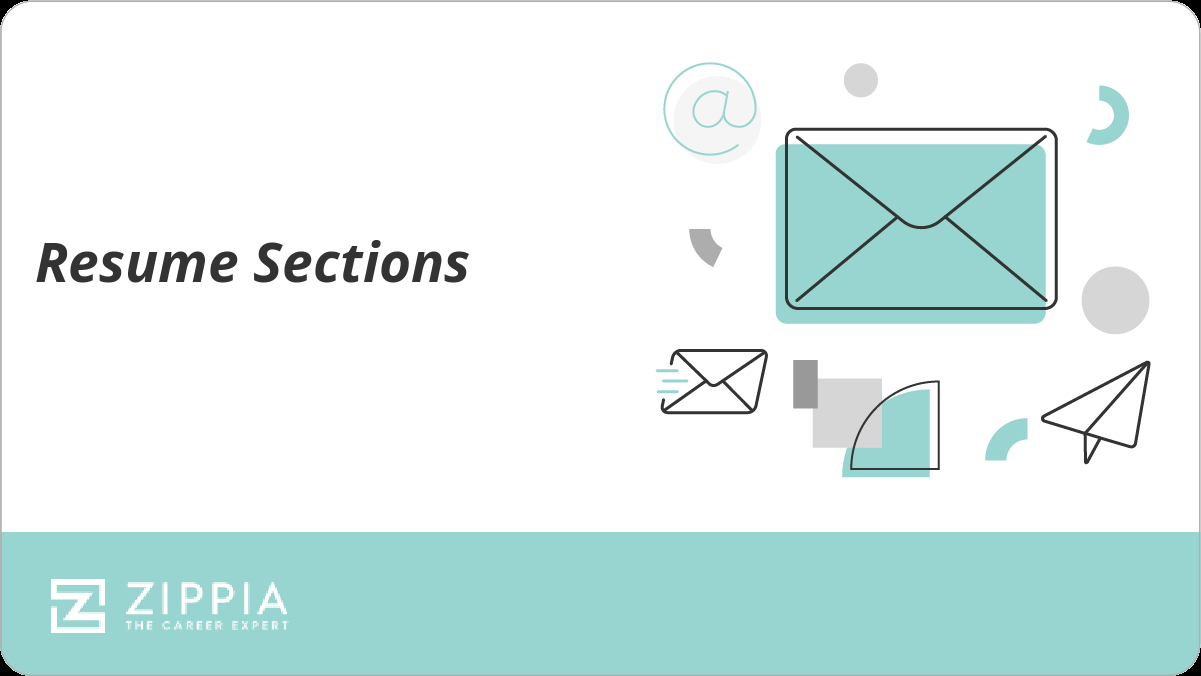How to Put Your Thesis on a Resume
- When it's appropriate to feature your thesis in a resume

A template and example on how to feature a thesis on your resume
Tips to list your thesis on your resume.

A thesis is a statement that explains the general point of a project. Typically, this statement gives the reader a clear idea of the primary points so they can have more context when working through the information to follow. It may also offer a definitive hypothesis, statement, or personal perspective.
The thesis also refers to an academic project that a doctoral candidate completes in pursuit of their professional qualification. We’ll focus on that usage today, looking at how to add this project to a resume.
In this article, you’ll learn
- When it’s appropriate to add a thesis to a resume
- Tips on adding your thesis to a resume
- Key takeaways
When it's appropriate to feature your thesis in a resume
Here are a few instances when you should add your thesis to your resume.
When applying for another degree
Thesis work looks good when you’re applying for other programs. It shows that you’re familiar with academic coursework and have completed significant challenges in your field.
When it’s relevant to the position
A thesis shows that you’ve earned specialized knowledge. When that knowledge pertains to a certain position, the employer must know that. Even if the relevance is a slight stretch, it’s still worth citing on your resume.
When you want to show transferable skills
Gaining a thesis requires refined skills. Those skills are likely transferable . Isolate those skills and think of ways they could apply to your intended position. If the skills relate directly, that’s a great reason to add the thesis to your resume.
Let’s see how you could add your thesis to a resume . It might be challenging to figure out where you should add the information. The following examples should give you some perspective.
Example of a thesis on a resume
Here’s an example of how to cite your thesis under “relevant experience.”
Doctoral Thesis
March 2019 - january 2020.
Produced an accepted thesis on the function of microorganisms in the onset of heart disease. Worked closely with University faculty to achieve insights that have since saved lives. Utilized intense research, communication, and organizational skills to complete the project.
A few concise sentences about impact, structure, and the effort required will help display the work you’ve done.
A thesis on resume template
You could cite your thesis in numerous places in your resume. However, it’s smart to find one place and stick to it.
In a template , you might find space for your thesis under “work experience,” “professional experiences,” “education,” or somewhere in an introduction.
Here are a few things you could note in your description of the thesis.
Make sure to mention your GPA
Your GPA holds a lot of weight. Noting that you could finish a thesis and maintain a solid GPA is smart. You can also note any grading that came from your thesis work, specifically.
List relevant research projects
Cite particular research projects that occurred within your thesis work. These will all highlight different skills or unique knowledge that you have.
A key thing to remember is that you can apply skills gained while earning your thesis. You can also use your thesis in numerous areas of the resume.
Understanding how to add a thesis to your resume intelligently can help you stand out and utilize the skills you gained through your doctoral process.

- Resume Guides
How to Answer The "What Do You Least Like About Your Job?" Interview Question
Short term job resume, 21 chatgpt prompts to get you to start writing your cover letter, is it ok to lie on your resume, why are you leaving your current job - interview question (+ answers), 129+ resume objective examples and how-to guide for 2024.
- Create Resume
- Terms of Service
- Privacy Policy
- Cookie Preferences
- Resume Examples
- Resume Templates
- AI Resume Builder
- Resume Summary Generator
- Resume Formats
- Resume Checker
- Resume Skills
- How to Write a Resume
- Modern Resume Templates
- Simple Resume Templates
- Cover Letter Builder
- Cover Letter Examples
- Cover Letter Templates
- Cover Letter Formats
- How to Write a Cover Letter
- Cover Letter Guides
- Job Interview Guides
- Job Interview Questions
- Career Resources
- Meet our customers
- Career resources
- English (UK)
- French (FR)
- German (DE)
- Spanish (ES)
- Swedish (SE)
© 2024 . All rights reserved.
Made with love by people who care.
Explore Jobs
- Jobs Near Me
- Remote Jobs
- Full Time Jobs
- Part Time Jobs
- Entry Level Jobs
- Work From Home Jobs
Find Specific Jobs
- $15 Per Hour Jobs
- $20 Per Hour Jobs
- Hiring Immediately Jobs
- High School Jobs
- H1b Visa Jobs
Explore Careers
- Business And Financial
- Architecture And Engineering
- Computer And Mathematical
Explore Professions
- What They Do
- Certifications
- Demographics
Best Companies
- Health Care
- Fortune 500
Explore Companies
- CEO And Executies
- Resume Builder
- Career Advice
- Explore Majors
- Questions And Answers
- Interview Questions
How To Put Research On Your Resume (With Examples)
- How To Write A Resume
- How To Build A Resume
- Specific Resume Words
- Action Verbs On A resume
- Words To Describe Yourself
- Resume Outline
- How To Make A Resume
- How To Make A Resume On Word
- How To Write A Resume Profile
- General Resume Examples
- Resume With No Experience
- Student Resume
- College Resume
- Entry Level Resume
- Military Resume
- Internship Resume
- First Resume
- College Application Resume
- 2 Page Resume
- Blank Resume Template
- College Freshman Resume
- Work History
- Resume Templates
- Resume Tips
- Best Resume Writing Services
- Things To Avoid On A Resume
- Resume Paper To Use
- What To Include In A Resume
- How To Write A Bio
- How To Write A Personal Statement
- Lied on Your Resume?
- Avoid Age Discrimination
- Words and Phrases You Shouldn't Include in Your Resume
- How Many Skills Should You List On A Resume
- Send A Resume As A Pdf
- Resume Critique
- Make A Resume Stand Out
- Resume Spelling
- Resume Past Or Present Tense
- How To List Projects On A resume
- Best Resume Action Words
- How To Quantify Your Resume
- Resume Bullet Points
- Are Resume Writers Worth It
- How Many Jobs To List On Resume
- Please Find Attached My Resume
- How To List Contract Work On Your Resume
- How To Put Research On Your Resume
- What Is A CV?
- CV Vs Resume
- CV Templates
- CV Examples
Find a Job You Really Want In
Research experiences and skills are an incredibly important aspect of many job applications, so it’s important to know how to put them on your resume correctly. Hiring managers and recruiters want employees who can help drive innovation by being able to apply research skills to problem solve and come up with creative growth solutions.
If you’re a job seeker looking to include your research skills on a resume , we’ll go over how to list research on resume, where you can include it on a resume, and give you some examples.
Key Takeaways:
If you don’t have traditional research experience, highlight the skills used for research that you’ve used in past jobs.
Consider creating a separate research section in your resume if you have a lot of research experience or merge sections, depending on which section you want to bolster with research.
Research experience is one of the best assets to include on a resume so be on the lookout for more opportunities.

What are research skills?
Where to put research experience on your resume
How to include research on your resume, examples of research on a resume, how to put research on your resume faq.
- Sign Up For More Advice and Jobs
Research skills are any skills related to your ability to locate, extract, organize, and evaluate data relevant to a particular subject. It also involves investigation, critical thinking , and presenting or using the findings in a meaningful way.
Depending on what job you’re applying for, research skills could make or break your ability to land the job. Almost every job requires some research skills and you probably already have some of those skills mastered by now.
For most careers, research is a vital process to be able to answer questions. “Research skills” are not a single skill, but multiple ones put together.
Some skills that are necessary for research are organization, problem-solving, critical thinking, communication, and specific technical skills, like coding, Excel, and copywriting.
Including research experience and skills on a resume can be incredibly flexible. When thinking about how to add it to your resume, you want to consider how the research experience adds to your resume.
Your research experience can be included in a few different sections of your resume. Some of those sections include:
Academic accomplishments
Research experience
Work experience/history
College activities
Volunteer work
Presentations and publications
Skills section
If you’ve had smaller research roles but no “official” research experience, you can highlight the skills associated with the types of research mentioned above in your job description under the work history section in your resume.
If your job history is a research position, then naturally, you would include research under the work history section. You can also merge your sections depending on what type of position you are applying for.
For example, you could create a “Research and Education” section or a “Research and Publications” section. If your research is not related to your education and you don’t have any publications, you can also detail it in a separate “Research” section in your resume.
To include your research on your resume, you should gather all the necessary information and then quantify your accomplishments to fit into specific sections. Here is a more detailed list of how to write about research experience in resume:
Gather all the necessary information. The first step is to collect all of the important details like the title of the research project, the location of the research project, the principal investigator of the project (if applicable), and the dates of the project. You will list these details much like you would list a company you have worked for in the past.
Read the job description carefully. Every resume and cover letter you write should be tailored to the job you’re applying for. When a hiring manager puts a necessary qualification in their job posting, you must be sure to include it in your resume.
Make sure that you highlight the right types of research skills on your job applications and resumes.
Quantify your accomplishments. When describing your role on the project, you will want to summarize your accomplishments and deliverables. Hiring managers and recruiters love seeing numbers. When you write out the deliverables from your project, make sure you quantify them.
Incorporate into your work history section. If there were times when you used your research skills in your past employment opportunities, include them in your work experience section. You can also include publications, conferences you may have presented at, and any awards or recognition your research had received.
If you have completed research in an academic setting, then presentations (oral and poster) are an important part of the research process. You should include those details along with the titles of your publications.
Add to your research section. Other aspects of research that you can detail to make your application more competitive are adding skills specific to your project to the skills section of your resume.
These skills will vary depending on the subject matter, but some examples include coding languages, interviewing skills, any software you used and are proficient in using, managerial skills , and public speaking if you have presented your research at conferences.
Add research to your skills section. If the specific research you did is less important than the skills you used to perform it, highlight that in your skills section. That way, you don’t have to take up a lot of work or education history with slightly irrelevant information, but hiring managers can still see you have research skills.
Just be sure you’re more specific about a research methodology you’re an expert in because the skills section doesn’t give you as much room to explain how you leveraged these abilities.
Sprinkle research throughout your resume. If you have a lot of experience performing research in professional, volunteer, and educational settings, pepper it in a few different sections. The more hands-on experience you have with research, the better (for jobs that require research).
Let’s look at some examples of how research can be included on a resume:
University research example
EDUCATION Undergraduate Thesis, University of Connecticut, Dec. 2017-May 2018 Worked alongside UCONN English Department head Penelope Victeri to research the poetry of New England writers of the 20th century. Explored common themes across the works of Elizabeth Bishop, Wallace Stevens, and Robert Lowell. Performed online and in-person research on historical documents relating to each author , including information on the political, religious, and economic landscape of the US at the time. Analyzed poetic works of each author and drew on similar contemporary regional authors’ works. Prepared 20,000 words thesis entitled “Place, Allegory, and Religion: Three 20th Century New England Poets” and defended my written arguments to a panel of English professors.
Customer service research example
WORK EXPERIENCE Conducted interviews with 20 customers each week to gain insight into the user experience with company products Used Google analytics to determine which pages were driving most web traffic, and increased traffic by 11% Reviewed thousands of customer surveys and compiled findings into monthly reports with graphic findings Presented at weekly marketing meeting to inform marketing team of trends in customer experience with our products
Laboratory research example
RESEARCH Conducted experiments on rat brains by introducing various novel chemical compounds and levels of oxygen Ran electricity through brain slices to view interaction of different chemical compounds on active brain cells Prepared sterile samples for daily check and maintained 89% percent yield over the course of a 3-month study Presented findings in a final 15 -page research report and presentation to the Research and Development team
Examples of common research skills to list on your resume
Here are examples of research skills in action that you may have overlooked:
Searching for local business competition
Sending out customer satisfaction surveys
Summarizing current policies and laws in effect for a particular topic
Creating lesson plans based on current education standards
Reading literature reviews and implementing changes in clinical practice
Attention to detail
Problem-solving skills
Critical thinking
Project management skills
Communication skills
Why are research skills important?
Research skills are important because they can help you identify a problem, gather information, and evaluate that information for relevancy. Including your research skills on a resume will show hiring managers that you have the ability to suggest new ideas and help their organization adapt and change as the industry changes.
Some common research skills include:
critical thinking
Computer skills
Can I list research as a skill?
Yes, you can list research as a skill on your resume. Including your research skills in your resume can help show a potential employer that you have the ability to suggest new ideas and use critical thinking to find solutions to problems. Most research skills will use attention to detail, problem-solving, and project management skills.
California State University San Bernardino – Incorporating Research Project Experience on Your Resume
University of Missouri – How to Put Research on Your Resume
How useful was this post?
Click on a star to rate it!
Average rating / 5. Vote count:
No votes so far! Be the first to rate this post.

Heidi Cope is a former writer for the Zippia Career Advice blog. Her writing focused primarily on Zippia's suite of rankings and general career advice. After leaving Zippia, Heidi joined The Mighty as a writer and editor, among other positions. She received her BS from UNC Charlotte in German Studies.
Recent Job Searches
- Registered Nurse Jobs Resume Location
- Truck Driver Jobs Resume Location
- Call Center Representative Jobs Resume Location
- Customer Service Representative Jobs Resume
- Delivery Driver Jobs Resume Location
- Warehouse Worker Jobs Resume Location
- Account Executive Jobs Resume Location
- Sales Associate Jobs Resume Location
- Licensed Practical Nurse Jobs Resume Location
- Company Driver Jobs Resume
Related posts

How To Answer “Sell Me This Pen” (With Examples): Job Interview Question

Writing Sample Tips

Resume Sections: How To Organize A Resume

Skype Interview Tips To Get The Job
- Career Advice >
- Get The Job >
- How To Put Research On Resume Research Experience
- Get the Job
- Resumes and CVs
- Applications
- Cover Letters
- Professional References
Professional Licenses and Exams
- Get a Promotion
- Negotiation
- Professional Ethics
- Professionalism
- Dealing with Coworkers
- Dealing with Bosses

Communication Skills
Managing the office, disabilities, harassment and discrimination, unemployment.
- Career Paths
- Compare Careers
- Switching Careers
- Training and Certifications
- Start a Company
- Internships and Apprenticeships
- Entry Level Jobs
- College Degrees
Growth Trends for Related Jobs
How to put a master's thesis to work in a resume.

Having a master's degree in a particular field already demonstrates that you have extensive knowledge in that subject area -- but adding information about your master's thesis on your resume can help drive the point home even more. It's especially helpful to include information about your thesis on the resume if that thesis relates closely to the job for which you're now applying -- but in any case, it's worth including it in your resume's "Education" section.
Where to Include the Thesis
In the "Education" section of your resume, list the schools you've attended in reverse chronological order . Start with the name of the institution, followed by the degree you earned and the area or subject you specialized in. If you're trying to save space, type "Thesis:" on the same line, and then include the title of your master's thesis . If you have available space -- or you want to make the information about your thesis stand out more for the employer -- skip a line under the basic information about your master's degree, hit "Tab" on your keyboard to create an indentation, and then type "Masters Thesis:" followed by its title. For even more emphasis, type one succinct line describing the nature of the thesis. To make it stand out even more, describe particular points from the thesis in your job application cover letter.
Related Articles
Proper format for an associate's degree on a resume →.

How to List Master's Degrees on a Resume →

How to Write a CV Sample →

How to Put a Bachelor's Degree on a Resume →

How to List Professional Development on a Resume →

How to List Education on Resume →

- Purdue Online Writing Lab: Education Section
- University of California Berkeley Career Center: CV - Part 2 - The Elements and How To Put Them Together
Nicole Vulcan has been a journalist since 1997, covering parenting and fitness for The Oregonian, careers for CareerAddict, and travel, gardening and fitness for Black Hills Woman and other publications. Vulcan holds a Bachelor of Arts in English and journalism from the University of Minnesota. She's also a lifelong athlete and is pursuing certification as a personal trainer.
Design Pics/Design Pics/Getty Images
- Job Descriptions
- Law Enforcement Job Descriptions
- Administrative Job Descriptions
- Healthcare Job Descriptions
- Sales Job Descriptions
- Fashion Job Descriptions
- Education Job Descriptions
- Salary Insights
- Journalism Salaries
- Healthcare Salaries
- Military Salaries
- Engineering Salaries
- Teaching Salaries
- Accessibility
- Privacy Notice
- Cookie Notice
- Copyright Policy
- Contact Us
- Find a Job
- Manage Preferences
- California Notice of Collection
- Terms of Use
University of Missouri
- Bias Hotline: Report bias incidents
Undergraduate Research
How to put research on your resumé.
Resumés are important documents for all kinds of application packages — jobs, scholarships, grad school, etc. Your resumé should fit within the total package highlighting your achievements in a concise manner that can be further expounded upon in your personal statement, cover letter, or your letters of reference. It is important to custom tailor your resumé to any particular position, or program you are applying for. Some information needs to be emphasized more than other depending on what the reviewers may be looking for.
Using Your Space Wisely
In general, a resumé should be no more than two pages long — unless you have a large number of presentations or publications that need to be listed. Avoid the tendency to add more “stuff” to your resumé to try to look impressive. Use the relevant experience you have and determine what was impressive about it (for example, demonstrated independence, innovation, grit, or tenacity; helped improve ways of doing things in the lab; were given additional responsibilities as time went on; etc.)
- A reviewer would rather read about the two positions you had that are relevant, than try to sift through seven or eight clubs or fast-food job descriptions.
- Transcript?
- Recommendation Letters?
- Personal Statement?
Typically, resumes are formatted so that your most recent position is listed first. However, don’t put working at Dairy Queen first, if you are applying for a research position. Instead, consider using some of the following sections:
- Academic Accomplishments
- Research Experience
- Work Experience/Employment
- College Activities
- Volunteer Work
- Presentations and Publications
You do not need all of these categories, especially if you do not have relevant, interesting, or recent experience with them. Do not feel forced to try to fit your resume into someone else’s template. Make a list of what you want to include then design categories that fit your experience and story. Keep in mind that these categories will change over time (for example: five years after college, you will no longer need to include a section on “college activities”).
Research Mentor
- Area of research
- Not only does it show that you worked directly with a faculty member in your position, but reviewers might be familiar with your mentor’s work which could put you at an advantage.
- Consider listing projects and accomplishments the group achieved first before breaking things out on a year to year basis.
- If you were funded by different sources at different times, put a list of these sources at the bottom of the experience in this position.
Job Titles, Time Periods
- Use something that makes sense (sometimes HR titles do not)
- Instead of “MUURS Scholar” say “Student Researcher funded by the MU Undergraduate Research Scholars Program”
- Summer 2017 (9 weeks, full time internship)
- Academic Year 2018-2019 (15 hrs/week)
- What does that award mean?
- Will anyone outside of campus know what that is?
- Was the program selective?
- What was the award amount?
- What was the duration of the award?
- You can list various funding sources at the end of the relevant section
- External funding (from a government entity such as NIH, for example) is impressive. Be sure to list it.
You need to take the time to seriously consider your experience and how that allowed you to grow and mature as a researcher. Ask yourself these questions when brainstorming about your experience:
- What are areas you excelled in?
- What are lessons you learned?
- What are things you improved upon from the person before you?
- How did you spend your time?
- What skills did you gain?
- What research outcomes were reached?
- How long were you in the lab?
Use specific numbers or other qualifiers when applicable to show just how much work, effort, independence, or tenacity you had.
If your publication and presentation experience is limited, it is recommended that you include it with your relevant experience. However, if you have extensive or otherwise impressive experience (won a presentation award at a conference, or presented your work to state legislators at the Undergraduate Research Day at the the State Capitol, for example) then include a new category specifically for Presentations and/or Publications.
Presentations
- Include full list of authors
- Include full and official title
- Include if it was poster or oral presentation (ie, 15 minute presentation)
- Include location, event
- Include date (at least month and year)
- Include any award
- Check in with your mentor, to find out if a poster you co-authored was presented elsewhere.
Publications
- Full citation when published
- In Press – journal, date?
- Submitted for review – journal/date
- In preparation
- Check with your mentor as many projects are not completed by the time as student graduates.
Final Reminders
- Know your audience
- Explain (or spell out)
- Organize to fit your own situation
- Make it easy to follow – esp. if you have ‘time away’
- But have on comprehensive and cohesive running resumé.
- Have a system in place to update/organize your resumés.
- Use professional language, as most files are submitted electronically — the reviewer will see if you named a file “Better Resumé”
- ex: Jane Doe Resumé – Biochemistry REU, UT Austin
- This will ensure that the reviewer knows who you are and what you are applying for without even opening the file.
We encourage students to visit the MU Career Center in the Student Success Center for help on their specific application needs.

COMMENTS
The information you can supply when listing a qualification is: The name of the quali fication. The name of the institution. The location of the institution. Start and end dates. Your GPA, if 3.5 or above, or a grading of Merit or Distinction. Thesis title and a brief synopsis. The name and title of your advisor.
A thesis is a statement that explains the general point of a project. Typically, this statement gives the reader a clear idea of the primary points so they can have more context when working through the information to follow. It may also offer a definitive hypothesis, statement, or personal perspective. The thesis also refers to an academic ...
Learn more about how ResumeSolution can make your application stand out. 1. Include a Thesis in Resume Education Section. We will start the list with the most common method people use for adding a thesis to their resume. The education section is the ideal place to add a piece of information like this.
The first step is to collect all of the important details like the title of the research project, the location of the research project, the principal investigator of the project (if applicable), and the dates of the project. You will list these details much like you would list a company you have worked for in the past.
In the "Education" section of your resume, list the schools you've attended in reverse chronological order. Start with the name of the institution, followed by the degree you earned and the area or subject you specialized in. If you're trying to save space, type "Thesis:" on the same line, and then include the title of your master's thesis. If ...
Here's how to put your thesis on your resume and showcase your academic accomplishments. ... Resume Cover Post ...
Use professional language, as most files are submitted electronically — the reviewer will see if you named a file “Better Resumé”. Include your first and last name and the title of the position in the file name. ex: Jane Doe Resumé – Biochemistry REU, UT Austin. This will ensure that the reviewer knows who you are and what you are ...
brief. 1. Decide where to put your publications. Once you’ve decided to include publications on your resume, the next step is to decide where to put them. Depending on the number of publications you wish to list, you can use a dedicated publications section, or list your publications within your education section.
Create a dedicated section. Add a component to your resume page titled “Publications.”. Use reverse chronological order. List each publication as its own bullet point, starting with the most recently published. Choose only the most recent and relevant publications to avoid taking up valuable space on your resume.
Here’s an academic CV template that you can paste into Microsoft Word or Google Docs and fill out. It includes an outline for each section you should include, and what information you should list to best highlight your qualifications. 1. CV Heading. FIRST AND LAST NAME.